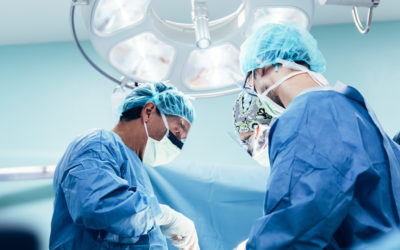Colonoscopy
Colorectal Cancer Screening and Colonoscopy Prep
Although colorectal cancer is one of the most common cancers in the United States, it often goes undetected, according to the American Cancer Society. Symptoms do not usually occur until the disease is advanced and 75% of people diagnosed with colorectal cancer don’t have a family history.
Colorectal cancer affects both men and women equally. Health experts recommend a colonoscopy screening adults starting at age 45*. Colorectal cancer is highly preventable with early detection and treatment, and a colonoscopy screening is one of the most powerful defenses to prevent colorectal cancer.
What is a Colorectal Cancer Screening?
A colonoscopy is a colorectal cancer screening that searches for potentially cancerous polyps (abnormal cell growths) on the inside lining of the colon or rectum. Catching these polyps can stop them from becoming cancer or detect cancer before it spreads.
Colonoscopy Prep – It’s Easier Than You Think
Despite what’s out there, colonoscopies aren’t nearly as difficult as myths suggest. Doctors and providers are committed to making your experience as stress-free and comfortable as possible.
- Easier prep: A colonoscopy prep diet usually includes drinking a large solution to clean your colon is why some avoid a colonoscopy. Physicians often prescribe a split dose, allowing patients to take half the night before, and the remainder the morning of the procedure.
- Simple: Uses a thin, flexible scope with a small, high-definition camera, your surgeon can detect and remove polyps in a single procedure.
- Painless: Most patients experience minimal discomfort, and you’ll likely receive medicine to relax or sleep through it, so you don’t feel anything. You may have no memory of the experience at all.
The vast majority of patients with colorectal cancers did not have any pain or other symptoms. A colonoscopy may be the only way to catch cancer early and get you on the fast track to treatment.
Frequently asked questions:
Q: How long does a colonoscopy take?
A: Talk with your doctor’s office about the time you should allot to your colonoscopy screening. There will be check-in paperwork, screening prep time, the time for the colonoscopy, then recovery that all needs to be factored into the time it takes.
Q: How much does a colonoscopy cost?
A: Pricing may vary. Please discuss pricing with your insurance representative or with your doctor’s office directly.
Q: How to make colonoscopy prep easier?
A: There are tips on this page to help make your experience as stress-free and comfortable as possible.
Healthy Diet and Controllable Risk Modifications:
A healthy diet is best for good colon health. Some dietary modifications that may help prevent colon cancer include:
- Avoiding processed/cured meats
- Consuming colorful fruits and veggies
- Cutting out saturated fat
- Eating foods high in dietary fiber
- Getting enough omega-3 fatty acids
- Limiting your salt intake
- Reducing alcohol consumption
- Restricting the amount of red meat you eat
Controllable lifestyle risk modifications include:
- Exercising
- Maintaining a healthy body weight
- Stop smoking
- Limiting alcohol use (no more than one drink/day for women and two drinks/day for men)
Schedule your colonoscopy screening today. It’s the best thing you can do for you! To schedule a screening close to home call 702-346-8040.
*If you are 45-49, check with your insurance provider to be sure a screening colonoscopy is covered.
Schedule a Consultation
Call 702-346-8040
Related Services and Conditions
Surgical Services
Mesa View Regional Hospital offers general and specialized surgical procedures. Many of these procedures are available on a same-day, outpatient basis. Whether it's a planned surgery or an emergency procedure, our experienced staff can tend to you in one of our two...
Hernia
Hernias can be more than a pain in the side. People of all ages can develop hernias. A hernia is when an internal organ or tissue bulges through an abnormal opening in the body, such as a hole or weakness in the abdominal wall. Hernias can occur at various parts of...
Pre and Post Surgery Instructions
Preparing for Surgery The night before surgery, please follow these guidelines: Eat a light dinner. Do not use alcohol or over-the-counter drugs, including cigarettes and chewing tobacco. Do not eat or drink after midnight, including gum, candy and water. Take...



